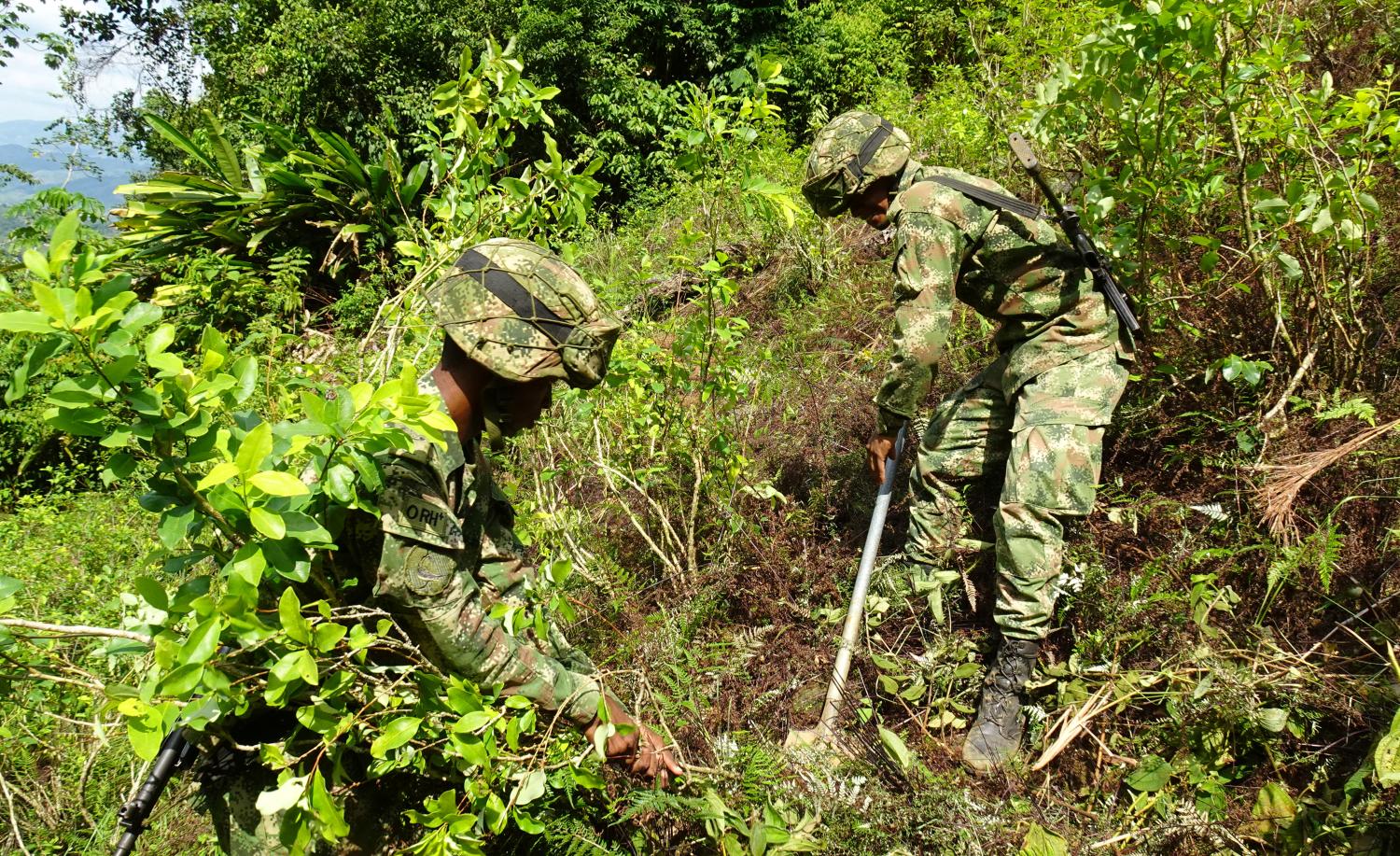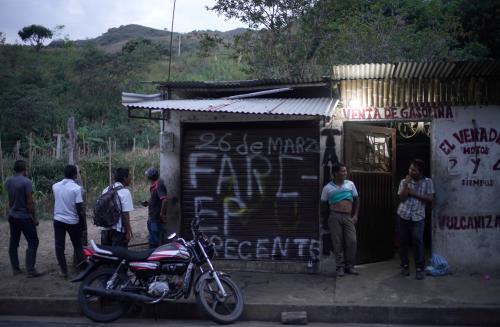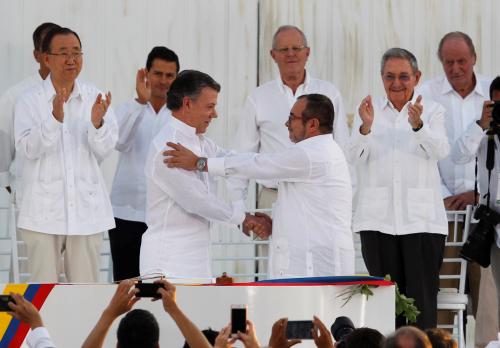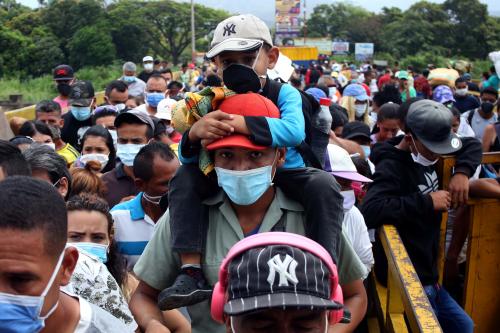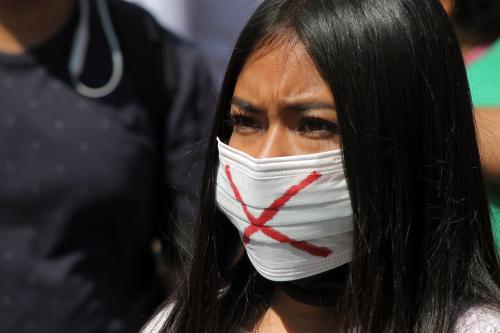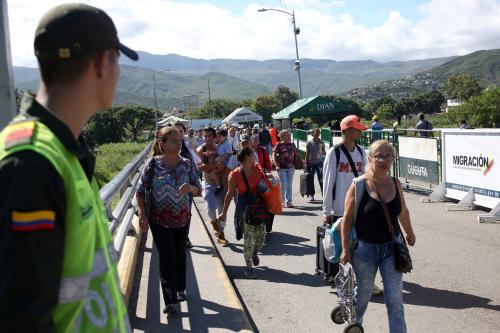This research was supported by the Office of the United Nations Resident Coordinator in Colombia.
Colombia’s counternarcotics policy choices have profound impact on consolidating peace in the wake of the 2016 peace deal with the Revolutionary Armed Forces of Colombia — People’s Army (Fuerzas Armadas Revolucionarias de Colombia — Ejército del Pueblo, FARC) and on the building of an effective state. Strategies of forced or voluntary eradication of coca crops have proven ineffective. As evidence from around the world shows, a long-term comprehensive effort to promote alternative livelihoods for coca growers — integrated into rural development and supported by well-designed interdiction efforts, with eradication delayed until these alternative livelihoods are generating sustainable income — has the best prospects for producing peace and a capable state and for reducing drug production.
To achieve sustainable and robust reduction of illicit crop cultivation, Colombia must thus expand its timeline of drug policy and state-building intervention well beyond 15 years. To achieve any viable transformative effects, it will also have to concentrate resources to selected zones of strategic intervention and gradually connect them and expand them to encompass larger areas in state intervention efforts.
The alternative livelihoods approach requires a concerted effort to build international support, particularly with the United States. It also requires countering the objections of Colombia’s political right. Arguments can be framed around the ineffective and counterproductive outcomes of forced eradication, the demonstrated benefits of comprehensive alternatives livelihood combined with well-designed interdiction to reduce the power of criminal groups, and other counternarcotics priorities in the United States.
A zero-coca conceptualization that insists on eradication first and conditions development aid on prior eradication of coca jeopardizes peace-building and statebuilding. In Colombia and elsewhere in the world, it has consistently failed to produce a sustainable reduction of coca cultivation. Forced eradication undermines the peace deal with the FARC and the broader legitimacy and presence of the state by jeopardizing the state’s ability to establish meaningful presence in areas formerly dominated by nonstate armed groups and radicalizing communities and cocalero (coca cultivator) movements. Aerial spraying will only compound these problems; drones will not redress the negative political effects, even if somewhat increasing the precision of spraying.
Voluntary eradication mitigates negative political effects associated with forced eradication. But in its current form, it is not effectively designed. Partly as a result of the zero-coca approach, the policy operates on unrealistic timelines that cannot generate adequate sustainable income for farmers in time and sours them on cooperating with the state.
The most effective policy to sustainably reduce illicit crops would deliver robust assistance before demanding eradication. Learning from the highly successful Thailand model, the necessary development package would include human capital development assistance, economic-resource development, and security and justice dispute resolution mechanisms. Communities would be told that after several years of such development efforts, likely at least five, eradication would eventually be undertaken in phases, gradually reducing illicit crop cultivation.
Special designs and policies must be considered for environmentally sensitive areas. Replacing coca with deforestation and wildlife trafficking would be a failure.
Achieving economic growth that creates jobs throughout Colombia is also fundamental, to give new opportunities to those currently employed in both licit and illicit work in rural areas and to generate adequate resources and political support among lower middle and middle classes for rural development efforts that need to be sustained for years to come.
The more violent conflict in Colombia is reduced, the more effective the country’s drug policy can be.
The Brookings Institution is committed to quality, independence, and impact.
We are supported by a diverse array of funders. In line with our values and policies, each Brookings publication represents the sole views of its author(s).

